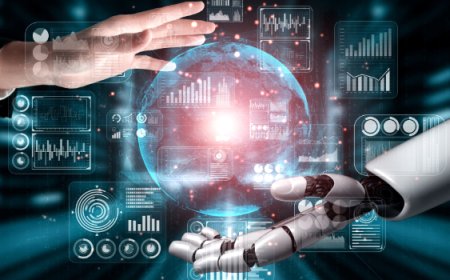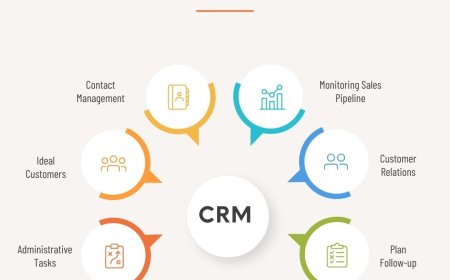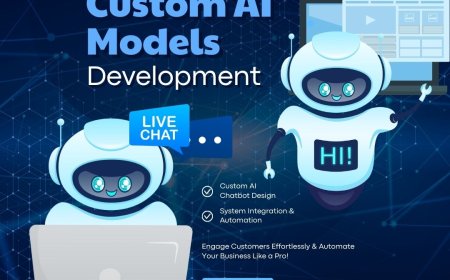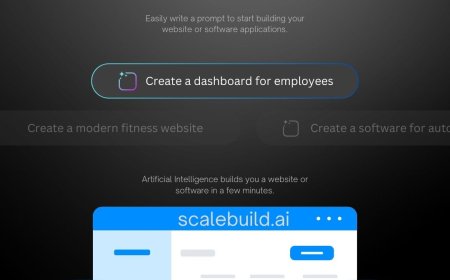Why We Didn’t Just Use ChatGPT and Hired an LLM Development Company Instead
Elevate your business with custom LLMs. As a top LLM Application Development Company in St. Louis, we boost experiences and streamline operations.
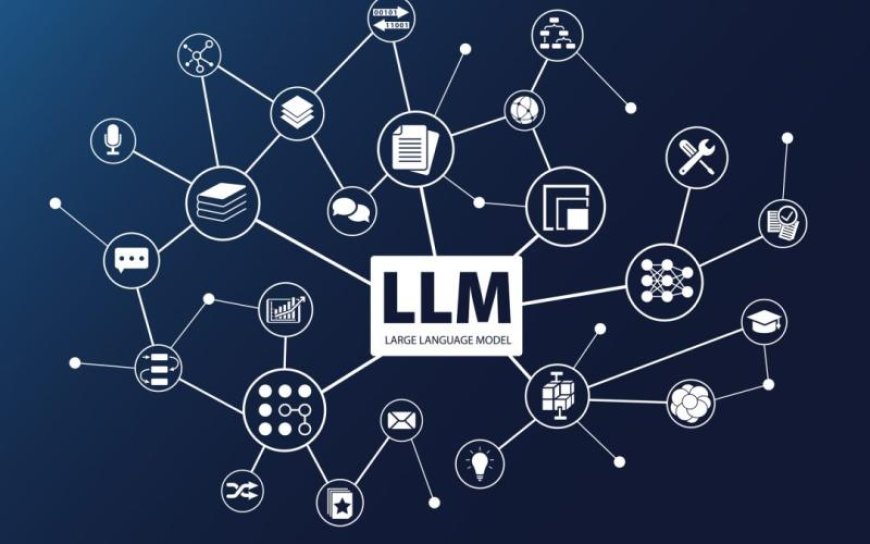
When I decided to add an AI-powered feature to our SaaS product, everyone had the same advice: "Just connect the ChatGPT API, its easy! The logic seemed sound: OpenAI had already solved the hard problem of building a conversational AI, so why reinvent the wheel?
We tried exactly that approach first. Within a few hours, our developer had built a basic integration that could answer user questions and provide helpful suggestions. The demo was impressive, the setup was fast, and I was convinced we'd found our solution.
But as we moved from prototype to production, the cracks started showing. The responses were inconsistent, sometimes confidently wrong, and completely generic. Worse, we had no control over the system's behavior or any guarantee of data privacy.
The Problems We Faced
The first major issue was reliability. ChatGPT would confidently hallucinate answers to domain-specific questions, especially around our niche industry regulations and internal processes. When a user asked about compliance requirements specific to our field, the AI would generate plausible-sounding but completely incorrect responses.
Brand consistency was another nightmare. Our company has a specific tone, professional but approachable, detailed but not overwhelming. ChatGPT's responses felt generic and corporate, nothing like how our actual team communicated with customers. We tried prompt engineering to improve this, but the results were inconsistent and required constant tweaking.
The deal-breaker was data privacy. Our product handles sensitive customer information, and sending user queries to OpenAI's servers created compliance issues we couldn't ignore. Even with their data usage policies, our enterprise clients weren't comfortable with their information being processed by third-party APIs.
Finally, we had zero control over model updates. OpenAI could change ChatGPT's behavior at any time, potentially breaking our carefully crafted workflows without warning. For a production feature that customers relied on, this uncertainty was unacceptable.
Why We Chose a Custom LLM Approach
After three months of frustration with the ChatGPT integration, I started researching alternatives. That's when I discovered the world of custom LLM development, companies that specialize in building tailored language models for specific use cases.
I found an LLM Development Company St. Louis that had extensive experience with retrieval-augmented generation (RAG) systems and model fine-tuning. Their approach was fundamentally different: instead of trying to make a general-purpose model work for our specific needs, they would build a system designed around our exact requirements.
The solution they proposed was a hybrid architecture combining an open-source language model with our internal knowledge base. This would give us the conversational capabilities we needed while ensuring every response was grounded in our actual documentation and policies. Most importantly, everything would run on our own infrastructure, giving us complete control and privacy.
They also emphasized building a system that matched our brand voice and communication style, trained on real conversations between our team and customers.
The Build Process and Results
The development process took four months, but the thoroughness was impressive. We started by clearly defining our use cases: an onboarding chatbot for new customers, a document summarization tool for our knowledge base, and contextual Q&A for user support.
The team collected and cleaned thousands of real customer conversations, support documents, and internal policies. They used this data to fine-tune an open-source model specifically for our domain, then built a retrieval system that could pull relevant information from our knowledge base in real-time.
The architecture was elegant: when a user asked a question, the system would first search our internal documents for relevant context, then generate a response using both that context and the fine-tuned model's understanding of our communication style.
The results exceeded our expectations. We achieved 95%+ accuracy on questions within our domain, with response times under 2 seconds. Every answer was grounded in our actual documentation, eliminating hallucinations. The tone was consistently on-brand, and users often couldn't tell they were talking to an AI rather than a human team member.
The Big Differences Between "Using ChatGPT" and Custom LLM Development
The contrast was striking across every dimension that mattered to us. Control was the biggest difference, we could adjust the model's behavior, update its knowledge base, and modify its responses in real-time. With ChatGPT, we were completely dependent on OpenAI's decisions and capabilities.
Cost structure was another major advantage. While the upfront investment in custom development was significant, our ongoing operational costs were much lower. No per-token fees, no API rate limits, and no surprise price increases from third-party providers.
Security and privacy were night and day. Our custom system processed everything internally, with full audit trails and complete control over data handling. This was essential for enterprise sales and regulatory compliance.
But the most important difference was effectiveness. A model trained specifically on our data, in our industry, with our communication style was simply better at helping our customers than a general-purpose system could ever be.
My Advice to Companies Considering LLMs
Start with your use case, not the technology. Define exactly what you need the AI to do, how you'll measure success, and what level of control you require. If you just need basic conversational AI for simple tasks, ChatGPT might be sufficient. But if accuracy, brand consistency, or data privacy matter, consider custom development.
Think about the long-term strategic value. An AI system that's deeply integrated with your business processes and trained on your specific data becomes a competitive advantage that's hard to replicate. Generic AI tools are commodities, custom systems are moats.
A good LLM Development Company in St. Louis will help you build something scalable and maintainable, not just impressive. They should challenge your assumptions about what AI can and should do for your business, and design systems that improve over time rather than requiring constant maintenance. But for production systems that matter to your business, the control, accuracy, and competitive advantage of custom development often justify the investment.
This is how, Our custom LLM transformed how our customers interact with our product and gave us capabilities that our competitors simply can't match with off-the-shelf solutions.




































